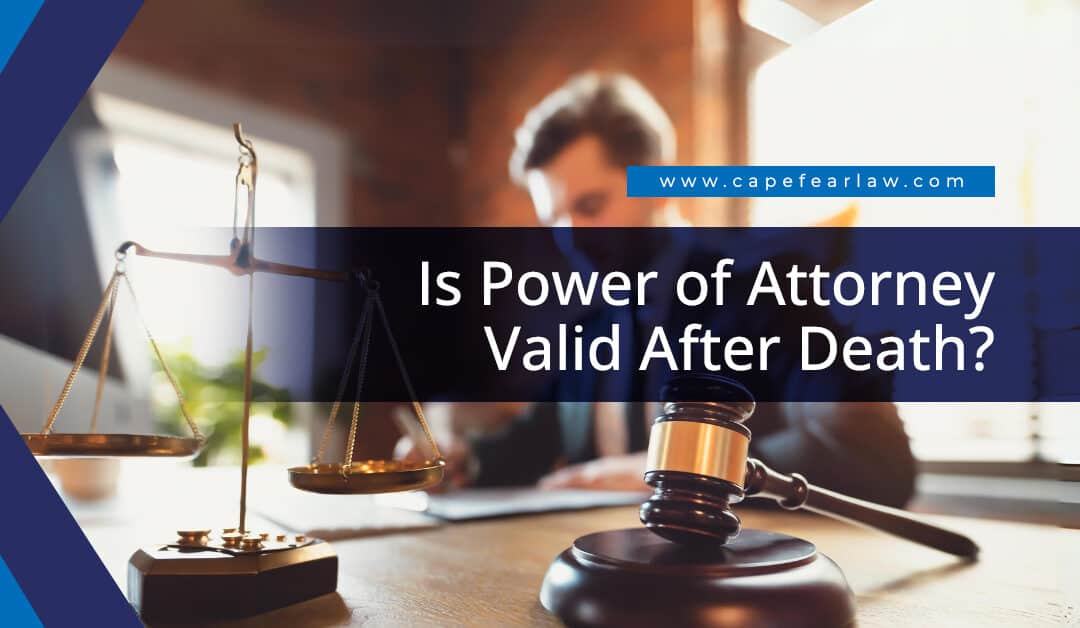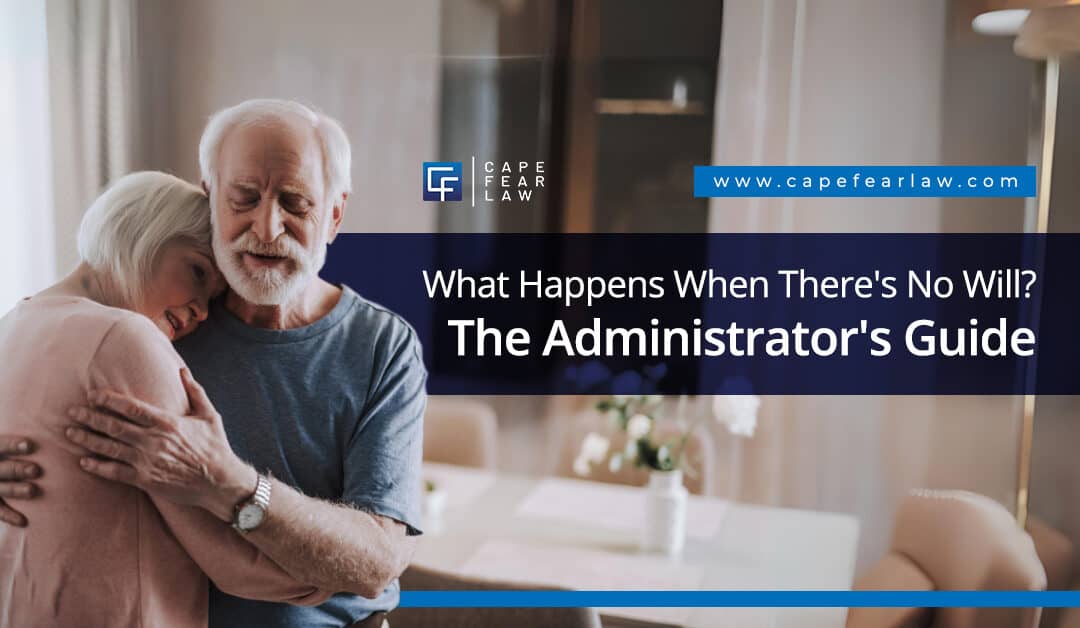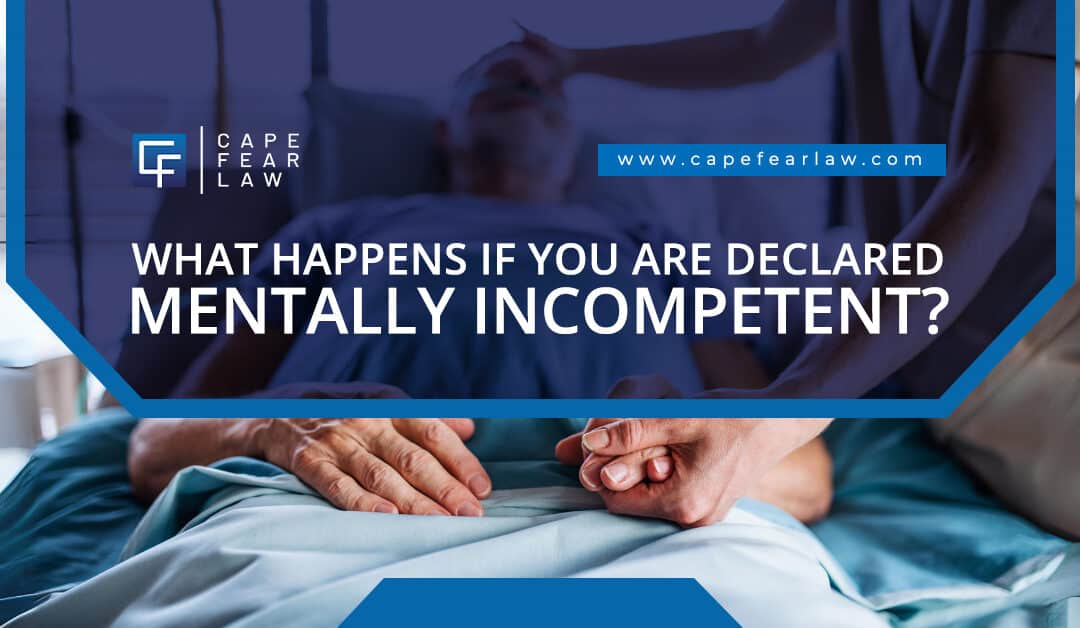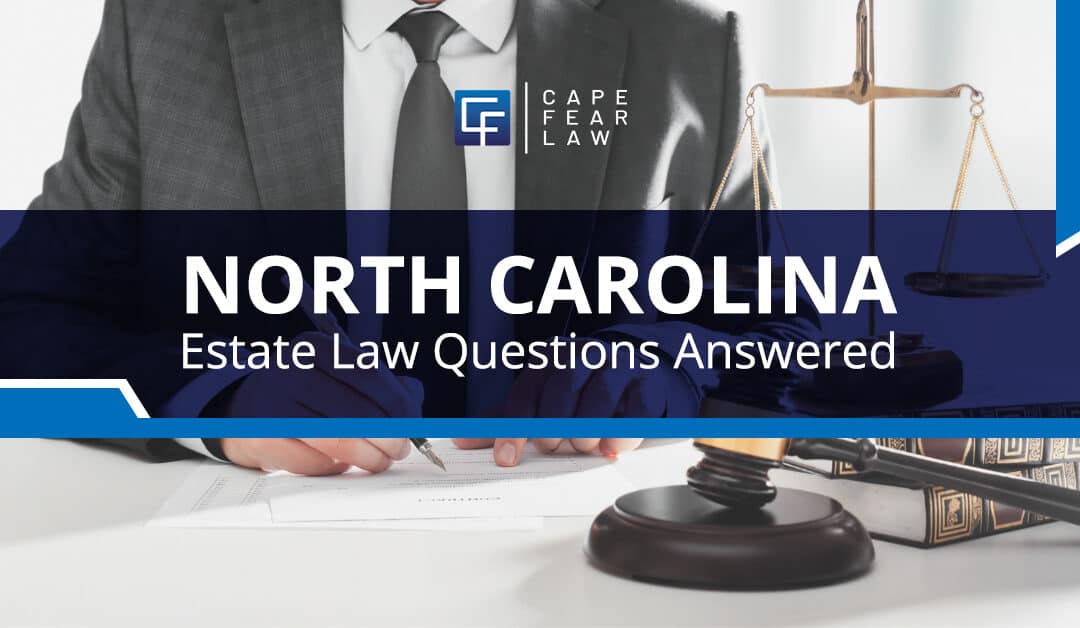
Is Power of Attorney Valid After Death?
Legal documents can be confusing, especially involving the power of attorney. Many people assume a power of attorney is valid after death. However, the status of a power of attorney document changes after a person’s passing. We’ll explore what happens when someone dies and clear up common misunderstandings. Join us as we uncover the truths behind the power of attorney and its validity after death.

What Happens When There’s No Will? Administrator’s Guide
A person who passes away in North Carolina without a will creates a unique set of challenges. In this guide, we will explore what happens in such scenarios. We’ll delve into the legal responsibilities, processes, and challenges the administrator faces. This person is pivotal as they ensure the management and distribution of the estate according to North Carolina laws. Read on for clear, straightforward insights to help administrators navigate this complex process. Whether you’re newly appointed or just seeking information, this guide will be a valuable resource.

What is a Small Estate Settlement?
Have you heard about small estate affidavits? They’re a handy tool for handling smaller estates. Think of them as a shortcut for settling an estate without getting tangled in legal complexities. In North Carolina, if an estate isn’t substantial, you can use a small estate affidavit to avoid the long, often complicated probate process. So let’s walk through how small estate affidavits can make settling an estate much simpler and faster in North Carolina.

What Happens if You Are Declared Mentally Incompetent?
What happens if one day you find yourself unable to make crucial decisions about your life, health, or finances? The thought of what would happen if you were declared mentally incompetent is unsettling. It’s a situation many prefer not to think about, yet it’s a reality that some may face. Keep reading to understand the legal implications, the protective measures available, and the pivotal role of timely planning in safeguarding your autonomy and well-being.

North Carolina Estate Law Questions Answered
Understanding how estate law works in North Carolina can be challenging. Whether you’re planning your estate, managing a loved one’s affairs, or simply seeking to understand your legal rights and responsibilities, we’re here to guide you through the essential aspects of North Carolina’s estate law. Whether you are an executor settling a loved one’s estate or a young person thinking of writing a will, a working knowledge of estate law can help you see how these processes work. So let’s look at the different aspects of estate law so that you can learn how to protect your own legacy and see how estates are settled after a death.

Executor Responsibilities to Beneficiaries in North Carolina
When someone passes away, the named executor of the will serves as the bridge between the deceased’s wishes and the beneficiaries’ rights. Whether you’re newly appointed or simply seeking to understand the process, we’ll walk you through the critical aspects of executor responsibilities to beneficiaries, ensuring you’re well-equipped to handle this crucial task with diligence and care.

Divorce and Custody Lawyers: Creating Family Law Solutions
Family disputes can pull you into a whirlpool of emotional and legal challenges. However, divorce and custody lawyers act as your guiding light in separation and divorce. They know the law inside out, ensuring the children’s best interests take center stage and parents’ rights get the protection they deserve. With the right lawyer, you can change distressing family discord into an agreeable resolution and friendly co-parenting. So read on and learn more about the crucial role divorce and custody lawyers play in helping find a peaceful path forward.

Can You Get Compensation If the Accident Was Your Fault?
Accidents happen, and sometimes you’re at fault. But what if you’re injured in the process? Can you get compensation if the accident was your fault? This blog delves into the complexities of accident liability and explores avenues for securing compensation, even when you may be partially responsible for the accident. We’ll break down the legal jargon and provide you with a clear understanding of your options.

What is an Amicable Divorce?
In North Carolina, when couples decide to part ways, they often hope for a smooth and respectful transition—a process known as an “amicable divorce.” But what exactly does this term mean, and how does it apply to the legal landscape of the Tar Heel State? Discover what an amicable divorce is. Understand the benefits and what you need to know if you’re considering this path. If you’re ready to move on from your marriage but don’t want things to get messy, an amicable divorce may be right for you!

Can You Get a Divorce Without Going to Court?
Divorce is never easy, but many people wonder if it’s possible to simplify the process and get a divorce without going to court at all. In North Carolina, the answer is a bit nuanced. While you can’t completely sidestep legal procedures, there are alternative methods like mediation and collaborative divorce that could keep you out of the courtroom. Explore these options and understand what’s feasible in the Tar Heel State.
